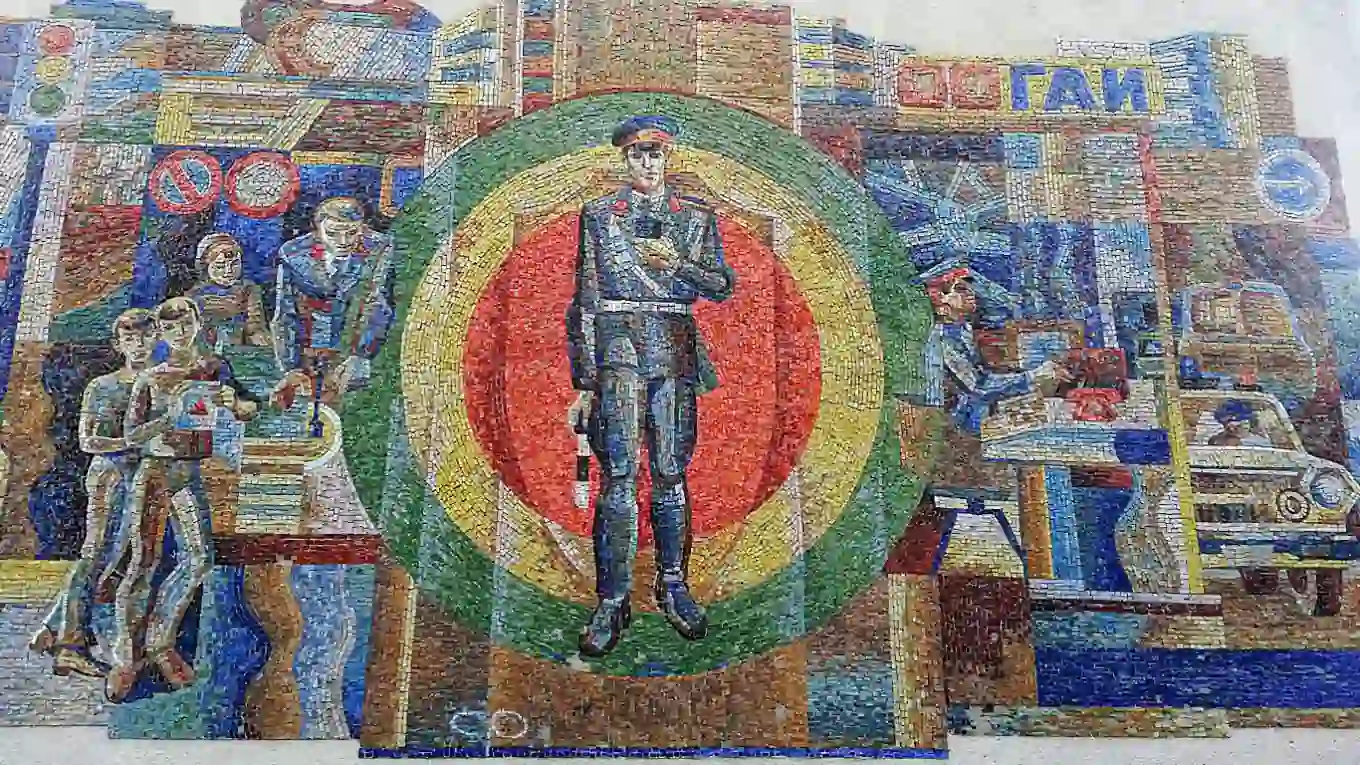In a symbolic move harking back to its Soviet roots, Russia has reverted to the historic title of its traffic police force, renaming the Main Directorate for Traffic Safety (GIBDD) to the State Automobile Inspectorate (GAI), as confirmed by the head of the traffic police force, Mikhail Chernkiv.
The decision, reported by the state-run TASS news agency on Tuesday, marks a return to the nomenclature established during the Soviet era when the GAI was first instituted in 1936.
This historic name was retained until 1998 when it was replaced by GIBDD following the collapse of the U.S.S.R.
During a recent Interior Ministry meeting, Chernkiv underscored the transition, stating, “We’ve now become the State Automobile Inspectorate,” while also hinting at potential changes within Russia’s regular police force.
He suggested a possible shift back to the Soviet-era term “militia,” supplanting the current Tsarist-era designation of “police,” reinstated in 2010 under the law enforcement reforms initiated during Dmitry Medvedev’s presidency.
Chernkiv affirmed that the name change had already been implemented, with all official documents now bearing the acronym GAI.
This adjustment aligns with long-standing political discussions within Russia, where various factions have advocated for reverting to traditional titles for law enforcement agencies.
The decision to reclaim the GAI title comes amidst historical and linguistic considerations. President Vladimir Putin himself expressed puzzlement over the rationale behind the earlier change to GIBDD shortly after assuming office in 2001.
He remarked, “There is this organization called GIBDD. It’s hard to pronounce, and I really don’t see why they changed it. No one can seem to explain it.”
This move to embrace historical titles is not isolated. It resonates with broader shifts in Russian society, reflecting nostalgia for elements of the Soviet era.
While the practical implications of the name change are yet to be fully realized, it underscores a cultural and linguistic reclamation.
However, the decision may also evoke debate and critique. Some may view it as a step backward, associating the GAI title with a bygone era marked by authoritarianism and censorship.
Others may perceive it as a deliberate attempt to project continuity with Russia’s historical legacy, fostering a sense of national identity and pride.
The shift in nomenclature within law enforcement agencies reflects a broader trend of historical revisionism and identity politics in contemporary Russia.
As the country navigates its post-Soviet identity, decisions regarding language and symbolism carry significant weight, shaping perceptions both domestically and internationally.
In renaming the traffic police force, Russia not only alters the bureaucratic landscape but also engages in a nuanced dialogue about its past, present, and future.
Whether this move signifies a return to tradition or a departure from modernization remains to be seen, but it undoubtedly adds another layer to the complex tapestry of Russian identity.
This article was created using automation technology and was thoroughly edited and fact-checked by one of our editorial staff members
